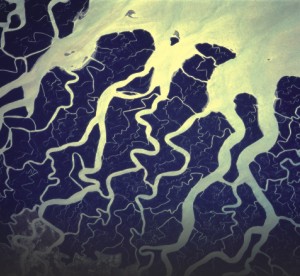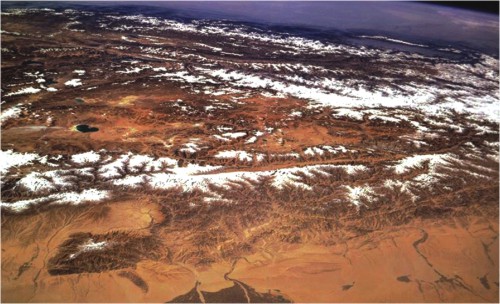
Inside
|
Making sense of water It is time for all of us to move beyond narrow environmental nationalism and look at our common water crisis from a regional perspective, argues Iftekhar Iqbal
These ecological settings provide the space for huge tracts of fertile agricultural lands in the delta, plenty of tea gardens and natural gas in the hillocks and offshore, and tremendous horticultural and fisheries opportunities. The region, however, remains one of the most underdeveloped in the world, and with remarkably low human well-being indicators. At the same time, this region lies dormant in the centre of a triangle constituted by three emerging economic giants, China, India, and Southeast Asia, which are converging for a great Asian economic stride in the 21st century. In the above context, it is crucial that we focus on the Ganga, Brahmaputra, and Meghna (GMB) rivers of the NESA-SWC region, which together form the second largest hydrologic system in the world. In their quest for appropriating these huge networks of water for agricultural and economic development, South Asian states have responded in a macro-nationalist approach. In India, for instance, a policy of controlling rivers for the state's development needs has culminated in a $112 billion project of diverting the "surplus" water of the Ganga and Brahmaputra rivers to other drought-stricken parts of India. On the other hand, Bangladesh, after the devastating flood of 1988, mooted a donor-driven national project of Flood Action Plan of embanking its rivers. China also has plans to divert the different water bodies of the Tibetan plateau, including the mighty Brahmaputra, to its other territories. Since about 90 percent of the Tibetan rivers' run-off flows downstream to India, Bangladesh, Nepal and Pakistan, the Chinese move may lead to a spiral of political contentions, particularly because all nationalist efforts by Bangladesh and India regarding water would be frustrated. It is, however, interesting that none of these mega projects, which essentially rely on the GMB river networks, have NESA-SWC regional perspective, neither have they seriously considered issues that directly influence human well-being, e.g. arsenic contamination, fisheries and food securities, salinity, drinking water, diseases and displacements. Recently, there has been significant shift in global-policy thinking regarding water resources, in which rivers are increasingly considered as objects of management rather than "control." The problems of flood, river-bank erosion, generation of hydro-electricity, irrigation, transport, communication and vital elements of well-being, are now all seen from an integrated management perspective, which suggests tailoring of people's needs according to the natural setting of the rivers, not the other way round. Vigorous eco-regional cooperation is naturally sought in this regard from the civil society across the region. In this context, we need to particularly focus on the political and technical capacities by which existing national water policies of Bangladesh, India, Nepal and China could be reconciled to a NESA-SWC regional framework.
It will not be an easy task to place the water regime of the NESA-SWC region into the mainstream of a common policy frame of South Asian States. There are barriers of varied kinds, including psychological, historical, political and technical. The formulation of an inter-regional macro water policy, however, may not be as difficult as it appears to be. Regional success stories like EU and ASEAN, and global assertions on the promotion of well-being, as reflected in the UN Millennium Development Goals, also demand a regional or global, rather than merely national, framework of development. We must seize the time, and find ways in which we may modify our attitudes towards boundaries that represent fluid nationalist zeal, rather than the state's stated goal of well-being of its citizen. By disassociating the largely imagined "nation" from the "state" we may perhaps appreciate the possibilities of frontiers within states becoming alternative sites for economic and social mobility which, in turn, may actually assist the state in its quest for spatially equitable distribution of the fruits of development as it mobilizes its ecological resources across borders. Dr. Iftekhar Iqbal is faculty member, Department of History, Dhaka University. |
 I
I